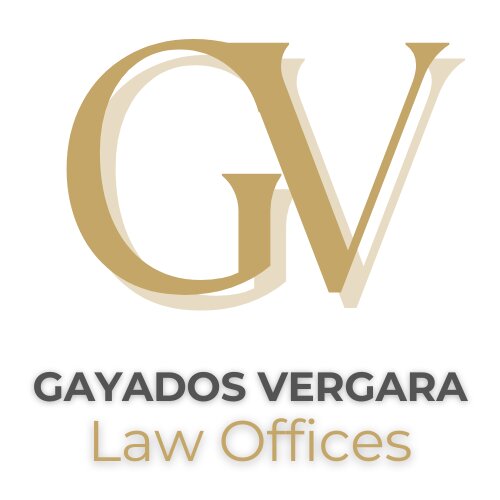Best Native People Lawyers in Pasay
Share your needs with us, get contacted by law firms.
Free. Takes 2 min.
List of the best lawyers in Pasay, Philippines
About Native People Law in Pasay, Philippines
Native People in Pasay, Philippines refers to the indigenous communities residing in the area. They have distinct cultural practices, traditions, and land rights that are protected by local laws.
Why You May Need a Lawyer
You may need a lawyer when dealing with land disputes, inheritance issues, or discrimination against Native People. A lawyer can help protect your rights and navigate the complex legal system.
Local Laws Overview
Local laws in Pasay, Philippines recognize the rights of Native People to their ancestral lands. These laws also aim to preserve and promote the culture and traditions of indigenous communities.
Frequently Asked Questions
1. What rights do Native People have in Pasay, Philippines?
Native People in Pasay, Philippines have rights to their ancestral lands, cultural heritage, and self-governance.
2. Can Native People own land in Pasay, Philippines?
Yes, Native People have rights to own and manage their ancestral lands in Pasay, Philippines.
3. What should I do if my land rights as a Native Person are being violated?
You should seek legal assistance from a lawyer who specializes in Native People law to protect your rights and resolve the issue.
4. Are there any government programs to support Native People in Pasay, Philippines?
Yes, the government has programs to support indigenous communities in Pasay, Philippines, such as cultural preservation initiatives and land titling programs.
5. Can I represent myself in legal proceedings related to Native People law?
While it is possible to represent yourself, it is recommended to seek legal advice from a knowledgeable lawyer to ensure your rights are protected.
6. What is the process for obtaining land titles as a Native Person in Pasay, Philippines?
The process for obtaining land titles as a Native Person in Pasay, Philippines involves proving ancestral land ownership and filing the necessary paperwork with the appropriate government agency.
7. How can I learn more about the culture and traditions of Native People in Pasay, Philippines?
You can reach out to local indigenous organizations or visit cultural centers dedicated to Native People to learn more about their culture and traditions.
8. Are there specific laws that protect the rights of Native Women in Pasay, Philippines?
Yes, there are laws that protect the rights of Native Women in Pasay, Philippines, such as laws against discrimination and gender-based violence.
9. Can non-Native People marry into indigenous communities in Pasay, Philippines?
Yes, non-Native People can marry into indigenous communities in Pasay, Philippines, but it is important to respect and understand the cultural practices and traditions of the community.
10. How can I get involved in supporting Native People in Pasay, Philippines?
You can get involved by volunteering with local indigenous organizations, attending community events, and advocating for the rights of Native People in Pasay, Philippines.
Additional Resources
For more information and support, you can contact the National Commission on Indigenous Peoples (NCIP) in Pasay, Philippines or local indigenous organizations.
Next Steps
If you require legal assistance related to Native People in Pasay, Philippines, it is recommended to consult with a lawyer who specializes in indigenous rights and has experience working with Native communities. They can provide guidance and representation to protect your rights and interests within the legal system.
Lawzana helps you find the best lawyers and law firms in Pasay through a curated and pre-screened list of qualified legal professionals. Our platform offers rankings and detailed profiles of attorneys and law firms, allowing you to compare based on practice areas, including Native People, experience, and client feedback.
Each profile includes a description of the firm's areas of practice, client reviews, team members and partners, year of establishment, spoken languages, office locations, contact information, social media presence, and any published articles or resources. Most firms on our platform speak English and are experienced in both local and international legal matters.
Get a quote from top-rated law firms in Pasay, Philippines — quickly, securely, and without unnecessary hassle.
Disclaimer:
The information provided on this page is for general informational purposes only and does not constitute legal advice. While we strive to ensure the accuracy and relevance of the content, legal information may change over time, and interpretations of the law can vary. You should always consult with a qualified legal professional for advice specific to your situation.
We disclaim all liability for actions taken or not taken based on the content of this page. If you believe any information is incorrect or outdated, please contact us, and we will review and update it where appropriate.








